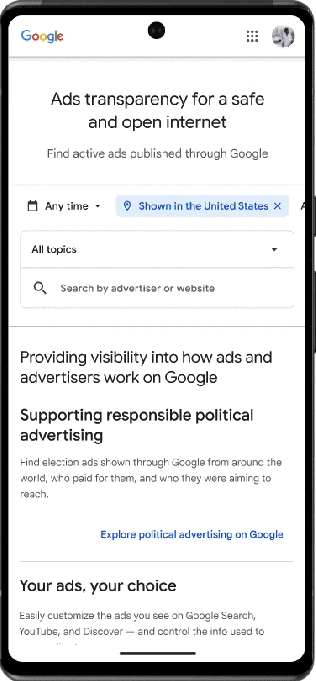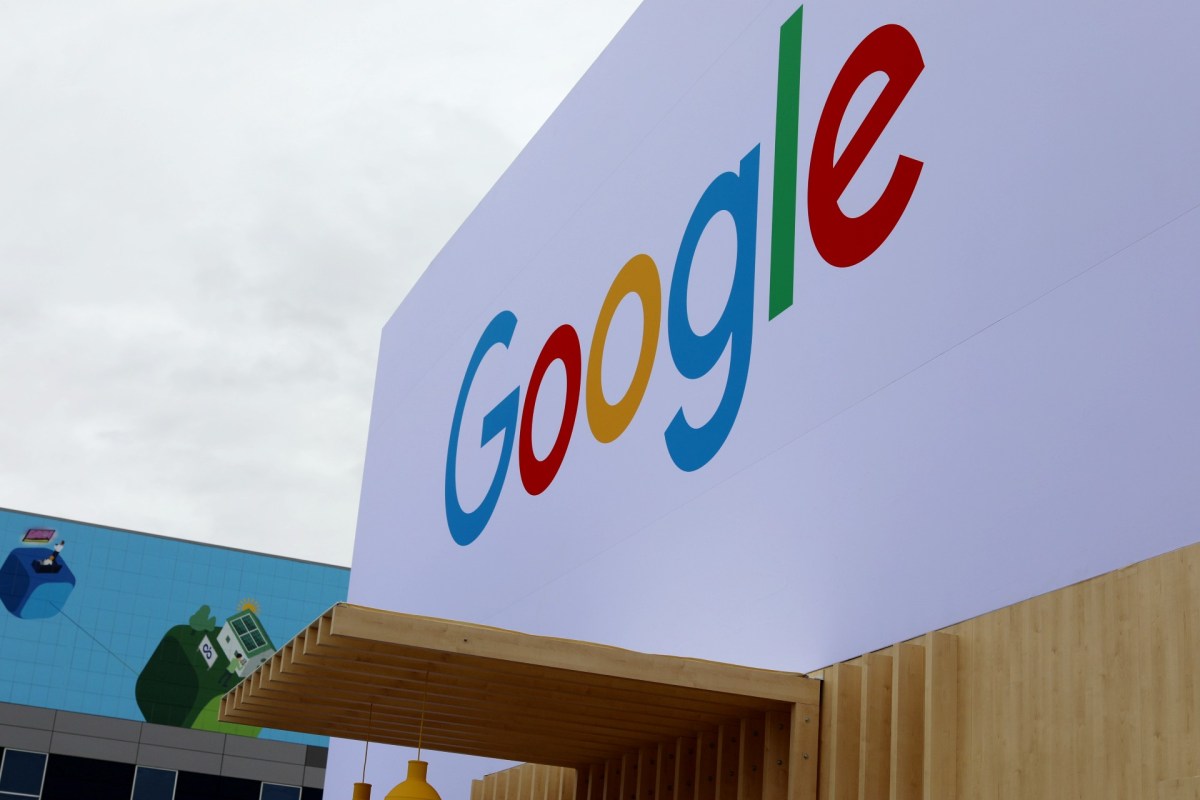Google is launching a new ad transparency center that will let users search for verified advertisers and their campaigns across all of the company’s platforms including Search, Display, and YouTube.
This new transparency center — which is accessible directly via this link and through the My Ad Center page — will let you search for ads from a brand, in what region those ads were shown, and the time they last ran a campaign along with the format. Users can like or block the ad or even report it for violation of Google ad policies if those ads show dangerous products or inappropriate content for instance. The Center is starting to roll out today and will be available to all users over the coming weeks.
Notably, Google launched the My Ad Center hub last year which lets users see information about ad topics, brands, and the recent ads they saw across Search, YouTube, and Discover. Users can tweak these settings by removing topics or brands or turning off personalized ads entirely. It’s important to remember that this doesn’t mean you won’t see any ads. It just won’t be based on your preferences and search data.
Google said that, after the launch, 20% of the 70 million visits to the My Ad Center page were to adjust ad preferences. Given that billions of people use Google’s platforms, this number doesn’t seem that impressive.
The Mountain View-based company said it is introducing this new transparency center so customers can know more about unknown brands and check if they have been verified by Google.

Image Credits: Google
“We’re committed to protecting our users by creating a safer, more trustworthy, and accountable ad experience. With the Ads Transparency Center, you’re never in the dark about the ads you see on Google,” Alejandro Borgia, Director of product management for Ads Safety said in a statement.
Google has been trying to provide more data on brand advertising through the company’s platform.
Last September, Google started to give users access to an advertiser’s history. A month later, the tech giant updated its “Ad” tag to “Sponsored” on mobile search for better visibility. Plus, it moved the tag above the URL instead of showing it next to the link address.
The search giant also launched an Ad Safety Report highlighting its effort towards thwarting malicious ads. The company said it blocked or removed 5.2 billion ads, restricted over 4.3 billion ads, and suspended 6.7 million advertiser accounts.
Google noted that last year it expanded its financial service certification program to 11 countries including the U.K., Australia, and Singapore. This project, aimed at stopping financial fraud, requires advertisers to show that they have permission from local authorities to promote their products and services. Google mentioned that in the last year it updated or introduced 29 ad-related policies to protect consumers.
The company’s ad business, which is its biggest revenue driver is facing scrutiny in the U.S. In January, the Department of Justice accused Google of abusing its monopolist position in the ad market. Eight states including New York and California joined the DoJ in a complaint aiming to “halt Google’s anticompetitive scheme, unwind Google’s monopolistic grip on the market, and restore competition to digital advertising.” Earlier this week, Google’s parent Alphabet asked a Federal judge to dismiss the case.
